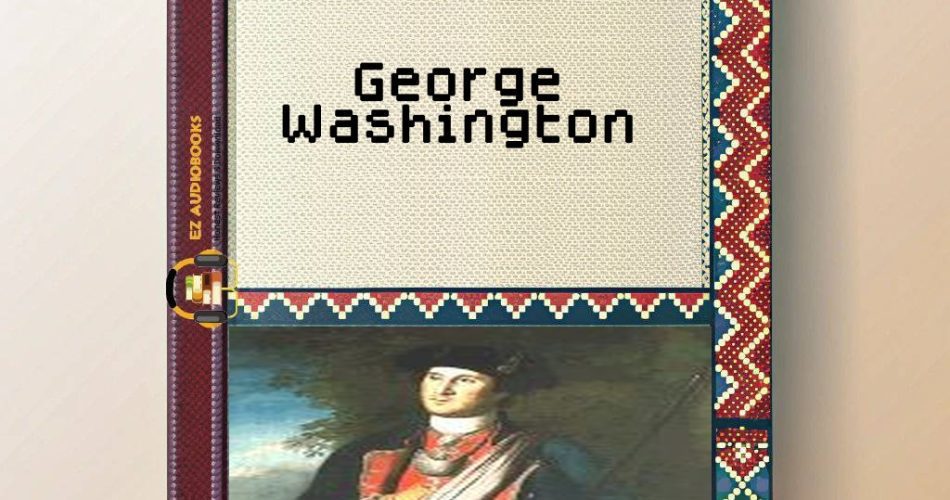Audiobook Sample
Listen to the sample to experience the story.
Please wait while we verify your browser...
- Title: George Washington
- Author: William Roscoe Thayer
- Narrator: Andrew Julow
- Length: 05:42:00
- Version: Abridged
- Release Date: 01/01/2012
- Publisher: Ejunto
- Genre: History, North America
- ISBN13: SABEJU9780018
As I settled into my favorite armchair with a cup of oolong tea, the familiar weight of my noise-canceling headphones reminded me of my first encounter with Thayer’s biography during my graduate studies at Harvard. The crisp digital audio now brings this classic text to life in ways that my yellowed paperback copy never could. William Roscoe Thayer’s “George Washington” emerges through Andrew Julow’s narration as both a historical document and a surprisingly intimate character study – a duality that fascinates me as someone who specializes in how narratives transform across mediums.
Thayer’s 1922 biography distinguishes itself through its meticulous use of Washington’s personal correspondence, creating what I would describe as an epistolary biography. This approach reminds me of my research on Japanese author Natsume Sōseki, whose letters similarly revealed the man behind the literary legend. Julow’s narration captures this intimate quality beautifully, his measured baritone conveying the weight of Washington’s words without slipping into unnecessary dramatization. The audio format particularly shines during passages of Washington’s letters – I found myself pausing the recording multiple times to reflect on how the spoken word made these 18th century documents feel startlingly immediate.
From an academic perspective, Thayer’s work occupies an important middle ground in Washington historiography. As we discussed in my graduate seminar on biographical writing, it bridges the gap between early hagiographies like John Marshall’s and modern comprehensive works like Chernow’s. Thayer’s particular strength lies in his analysis of Washington’s leadership psychology – his narration of the Valley Forge winter had me recalling my own visit to that historic site, where the physical landscape made Washington’s perseverance viscerally understandable. Julow’s pacing during these strategic sections demonstrates his understanding of military history, slowing slightly to emphasize key decisions while maintaining narrative momentum.
The audiobook’s treatment of Washington’s presidency reveals Thayer’s early 20th century perspective most clearly. His focus on constitutional formation and civic virtue reflects Progressive Era values, much as my research on Meiji-era Japanese literature reflects that period’s modernization anxieties. This temporal lens makes for fascinating comparative study – I found myself creating mental parallels between Thayer’s Washington and Yukichi Fukuzawa’s autobiographical accounts of building Japan’s modern institutions.
Julow’s vocal characterization deserves particular praise. Unlike some historical narrators who create distracting character voices, he employs subtle shifts in tone and rhythm to distinguish quotations while maintaining scholarly gravitas. His delivery of Washington’s farewell address sent chills down my spine – the careful emphasis on “the unity of government” and warnings against “permanent alliances” resonated with contemporary relevance. This performance aspect elevates the audiobook beyond the printed page, much like my experience comparing Cloud Atlas across formats revealed how audio can heighten certain thematic elements.
Some listeners might find Thayer’s prose occasionally dated – his description of Native American relations certainly reflects 1920s sensibilities. Yet these moments become valuable teaching opportunities about historiography’s evolution. The free availability of this audiobook (a rarity for quality historical works) makes it an excellent resource for educators. I’ve already added it to my “Historical Biography” course syllabus as a prime example of early 20th century historical writing.
For those seeking a comprehensive modern biography, Ron Chernow’s work might better suit your needs. But as a beautifully narrated primary text in the history of biography itself – and as a free audiobook no less – Thayer’s Washington offers immense value. It’s particularly compelling for listeners interested in leadership studies or the creation of political institutions. The final chapters covering Washington’s voluntary power relinquishment struck me with renewed force in our current political climate, proving that some historical lessons demand retelling across generations.
In scholarly appreciation of history’s enduring voices,
Prof. Emily Chen

